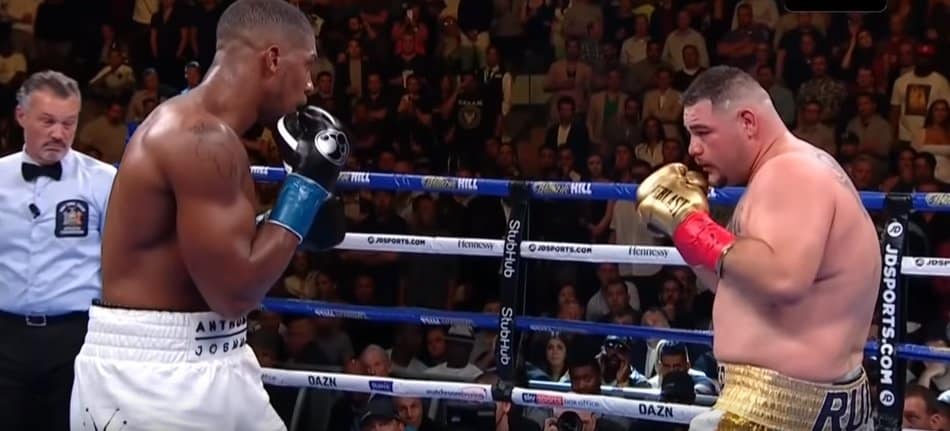
Boxing has received a somewhat bad reputation for fixed matches. People outside the sport like to focus on match-fixing as evidence that the sport is corrupt but in reality, match-fixing in boxing is more uncommon than most think.
Are boxing matches fixed? A vast majority of fights are fair to the fighters and fans. However, some matches can be fixed in two main ways:
- Transparently and honestly with journeymen fighters for the benefit of both opponents
- Through nefarious tactics used by unsavory influencers.
Mob ties in the early and mid-1900s gave boxing a bad reputation that it still hasn’t completely shed today.
More recently, in the 2012 and 2016 Summer Olympics had refereeing and judging scandals that affected boxing. These were so bad that the Olympic committee is considering removing boxing from the 2020 games.
And match-fixing has entered popular culture through movies like Snatch where organized crime leaders like the character ‘Brick Top’ are portrayed as individuals who place bets and fix matches through intimidation.
However, those involved deeply in the sport will know that boxing isn’t fixed a vast majority of the time.
It is hard to believe most fights are fair and honest competitions when tantalizing stories about scandalous fight results grab all the attention. So, it is important to understand why boxing matches aren’t fixed first before looking at some examples when they were.
After reading this article you can check out also: How to Become a Boxing Judge – The Ultimate Guide (opens in a new tab) where I talk about the job of being a boxing judge and how they make their decisions about the fights.
Why Boxing Matches are Not Fixed
The decision to fix a fight mostly comes down to the individual fighter because they are the one who has to take the dive. Fighters who have dedicated their lives to the sport and countless hours in the gym training have to battle their own competitive nature to take that dive.
If you spent that kind of time on anything, you would have pride in the skill you bring to the ring. Would you be able to bring yourself to throw a fight?
Boxing is a sport with honor and integrity and tends to shun those who treat it with disrespect. No fighter who has built their career and reputation wants to be cast out by the community they have dedicated their life towards.
Boxing Journeymen – a legal way to fix matches
There is a group of boxers who take pride in their job of being a boxing journeyman. They are put on cards to be the opponent who will expose the weaknesses of young talented fighters.
These journeymen are teachers and career boosters for boxers with promising career prospects.
I would argue that this does not qualify as “match-fixing” but as a controlled exhibition. Trainers know that their best young fighters need experience in the ring where they can feel the adrenaline and emotions of a real fight.
This is training they won’t receive anywhere outside of the ring. Not even in sparring sessions.
So, their managers have to commission real fights with journeymen to expose weaknesses, so they can become better and gather career momentum. Plus a journeyman is less likely to take it too far and severely injure the manager’s prized protégé.
As discussed in the video linked above, young fighters also respect and appreciate these journeymen helping them on their career progression.
Separating Journeymen and Negative Match Fixing
Match-fixing has a bad connotation and should be defined as a match that has outside influencers using boxing as a tool for their own gains.
These influencers are powerful individuals typically associated with organized crime or odds betting. They can influence the fighters, the trainers, referees, or judges depending on how obvious or secretive they want their influence to show during the fight.
Contrasted to this definition, journeymen participate in “fixed” matches by choice and aren’t influenced by nefarious outsiders or unsavory bribes. It is important to recognize this difference when talking about match-fixing.
A great article written by Deadspin’s Charles Farrell explains his reasons and the business aspects behind why some matches are fixed for honest or dishonest reasons.
Examples of Match Fixing
Jake LaMotta
In the mid-1900s, the mob-controlled boxing and one of its stars at the time were Jake LaMotta. LaMotta dived Billy Fox in exchange for a $20,000 bonus and a guaranteed title fight.
Sonny Liston vs. Muhammad Ali
This fight in 1965 was the second meeting of the two boxers and the second loss for Liston. Many people accuse this fight as fixed because of a supposed phantom punch knocking Liston down.
The punch’s severity can be debated but the rumors of match-fixing are fueled by Liston’s alleged mob ties and his unusual death by heroin overdose.
Basically, any fight promoted by Don King
Don King is a polarizing figure in the world of boxing. Some of the most memorable fights wouldn’t have happened without him but he used extremely shady tactics to take advantage of fighters.
Examples are rampant of him presenting fighters with a fraction of their promised purses. He was sued by the likes of Muhammad Ali, Larry Holmes, and Mike Tyson for stealing large sums of money.
He has also been suspected of having a judge or the referee in his pocket for every fight in order to sway the results his way.
Some Ridiculous Examples on YouTube:
Jorge Kahwagi vs. Ramon Olivas was suspected to be fixed for political reasons and it is partly hilarious and mostly disgusting.
Danny Green vs. Paul Briggs was one so obvious that even the announcers didn’t even try to gloss over the fact that he wasn’t hit at all. You can feel fans’ anger right through your screen.
Mike Tyson vs Bruce Seldon (probably not fixed)
This fight is an example of one that seemed fixed because Seldon went down so easily in the first round. However, Seldon looks scared after getting knocked down the first time. Then, when he gets knocked down again, he seems to simply give up.
He was scared and likely just wanted to get out of the match with his health and paycheck.
I don’t believe this one qualifies as match-fixing because the fighter probably decided to end it mid-fight.
Why would a Fighter Want to Fix a Match?
We have discussed a few examples of fixed fights and reasons why a fighter, manager or trainer would want to fix a match. Some honorable, some not.
So why would they want to do this?
Positive Reasons:
- They are journeymen and want to help a young fighter and make a living for themselves.
- The only way to have a chance at a larger title fight when the mob controls everything (e.g. Jake LaMotta).
- A trainer is allowing his fighter to make a paycheck but still saving that fighter from a potentially dangerous outcome (e.g. Tyson vs McNeeley).
- Turning an easy comeback fight into a guarantee so the fighter can begin another run at a title (e.g. Charles Farrell article linked above).
Negative:
- Getting a boosted payday out of greed (fighter, trainer, and manager, both)
- To appease a nefarious influencer (e.g. Don King)
- To avoid a worse situation outside of the ring (e.g. Sonny Liston and the mob).
Conclusion
Yes, fights are fixed at times.
Sometimes for good reasons and some for bad. Some by the fighter, some by their manager, and some by the officials.
But boxing is a sport of integrity and respect. Most fighters, given the opportunity to decide, won’t fix a fight in their favor and instead choose to fight fairly and honestly.
No matter their reason, if they do it blatantly, they can be shunned by the boxing community for the remainder of their careers. This is not a risk work taking for most boxers.
